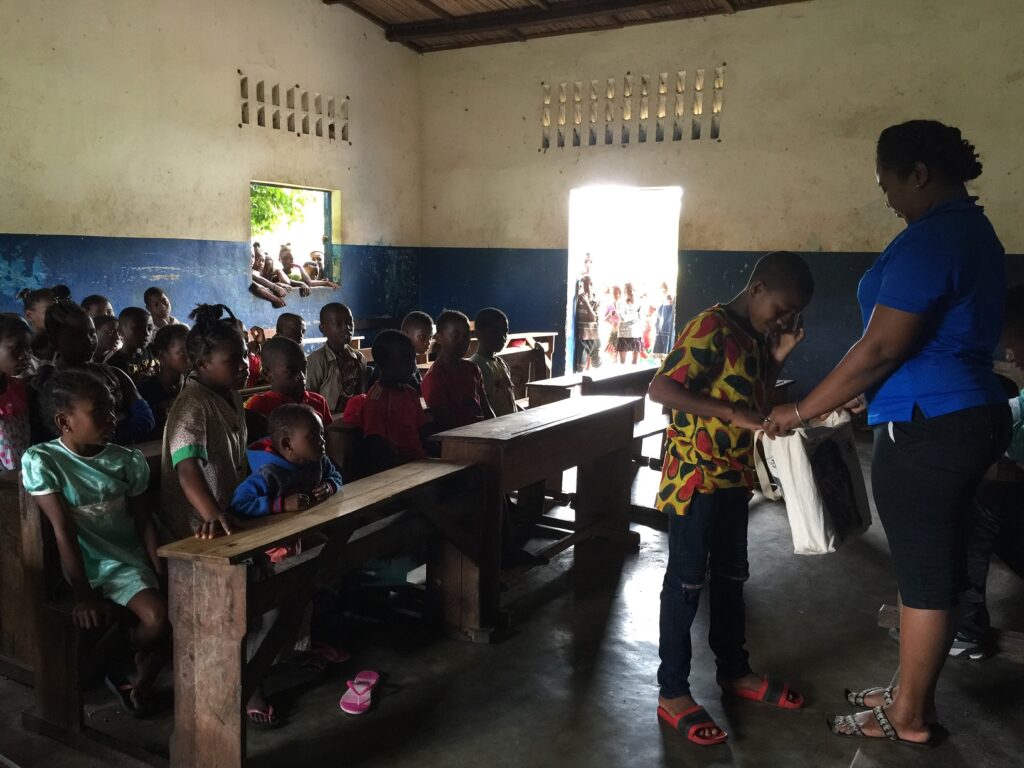By Drs. Marina Blanco and Lydia Greene
A paper on environmental education in the SAVA (northeastern) region of Madagascar, authored by DLC conservation and research staff, has been published in PLoS ONE! The paper highlights the importance of working with primary school students directly, and of designing ways to track and monitor knowledge/perceptions across students at different schools and across years.
Working with the DLC-SAVA Conservation program, the authors explored students’ baseline knowledge of environmental issues, like animals, forest, and water.
From photos, nearly all students correctly identified the ring-tailed lemur, a species that lives on the opposite end of the island but is commonly featured in advertisements. Few students, however, could identify the indri, a lemur species that is endemic to the region and lives in nearby protected areas.
Most students thought it was okay to keep wildlife in their homes (as pets), and 32% agreed with the statement that lemurs can live without forest.
The authors argue that the monitoring of conservation programs is essential. For environmental education specifically, continued study of students’ perceptions and baseline knowledge can help inform future programs and help better assess how activities may impact individuals and communities.
Click here to read the full article, published in PLoS ONE on April 21, 2020.
Authors: DLC research scientist Marina Blanco, Ph.D.; Alexie Rudman of Duke’s Nicholas School of the Environment; DLC research scientist Lydia Greene, Ph.D.; and DLC-SAVA Conservation staff Fusiane Razafindrainibe, Lanto Andrianandrasana, and Charlie Welch.

Fusiane Razafindrainibe with primary school students in Madagascar.

